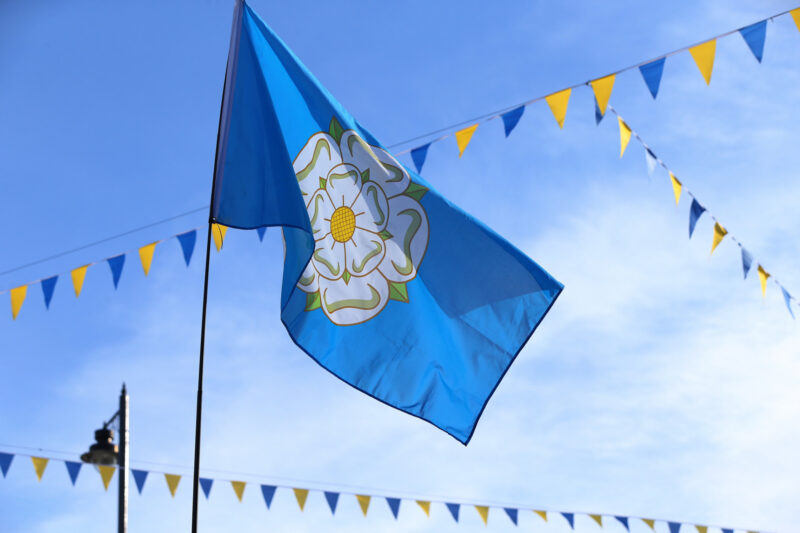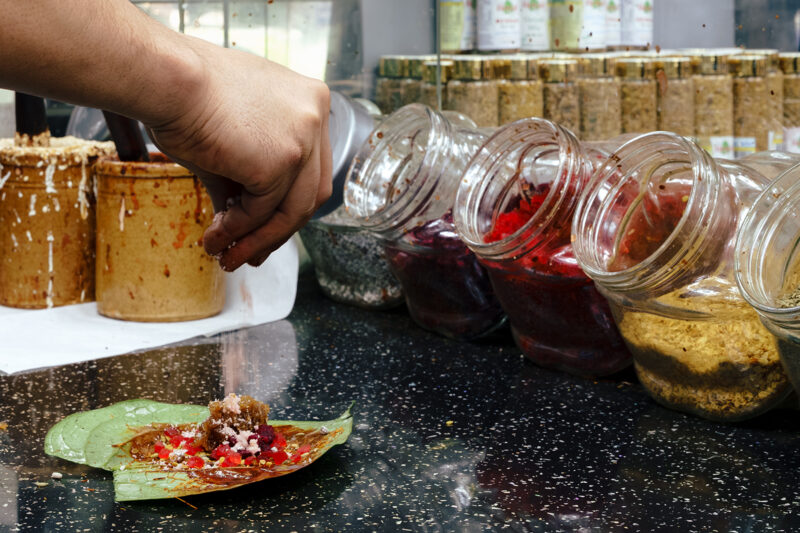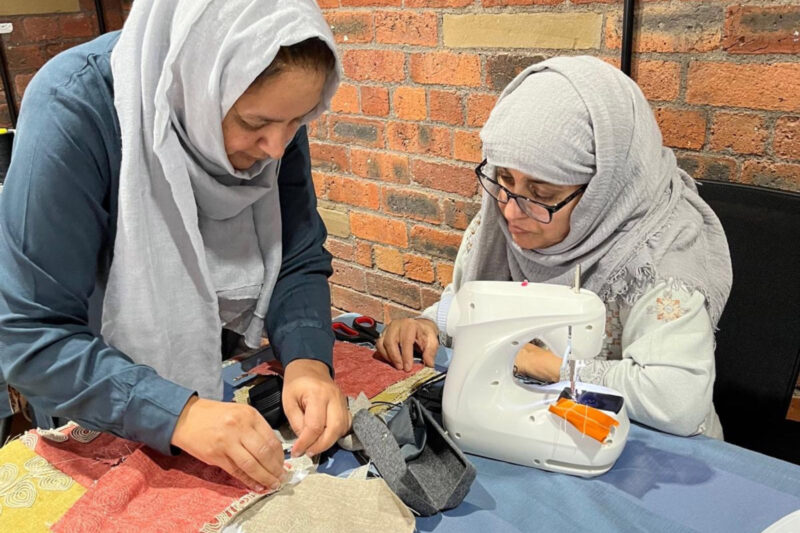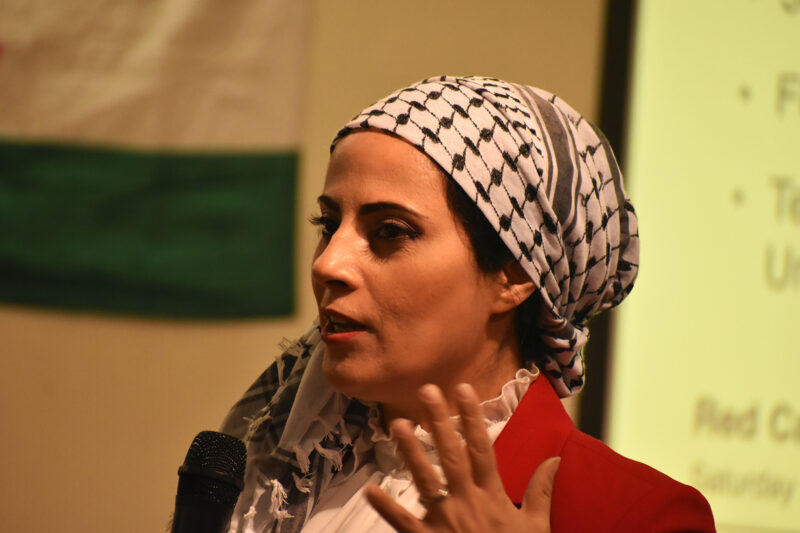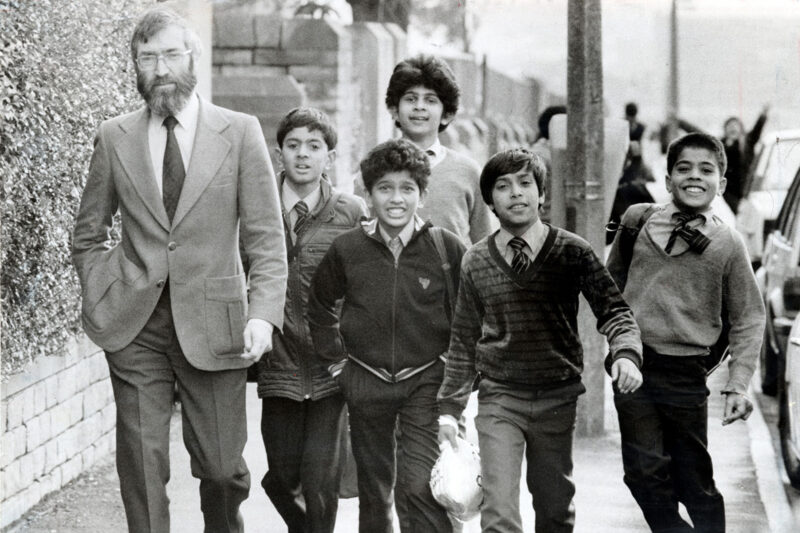Fans’ joy as Burnley and Leeds return to the Premier League
Turf Moor and Elland Road were once unwelcoming for local Muslims — but initiatives around both clubs have helped change that
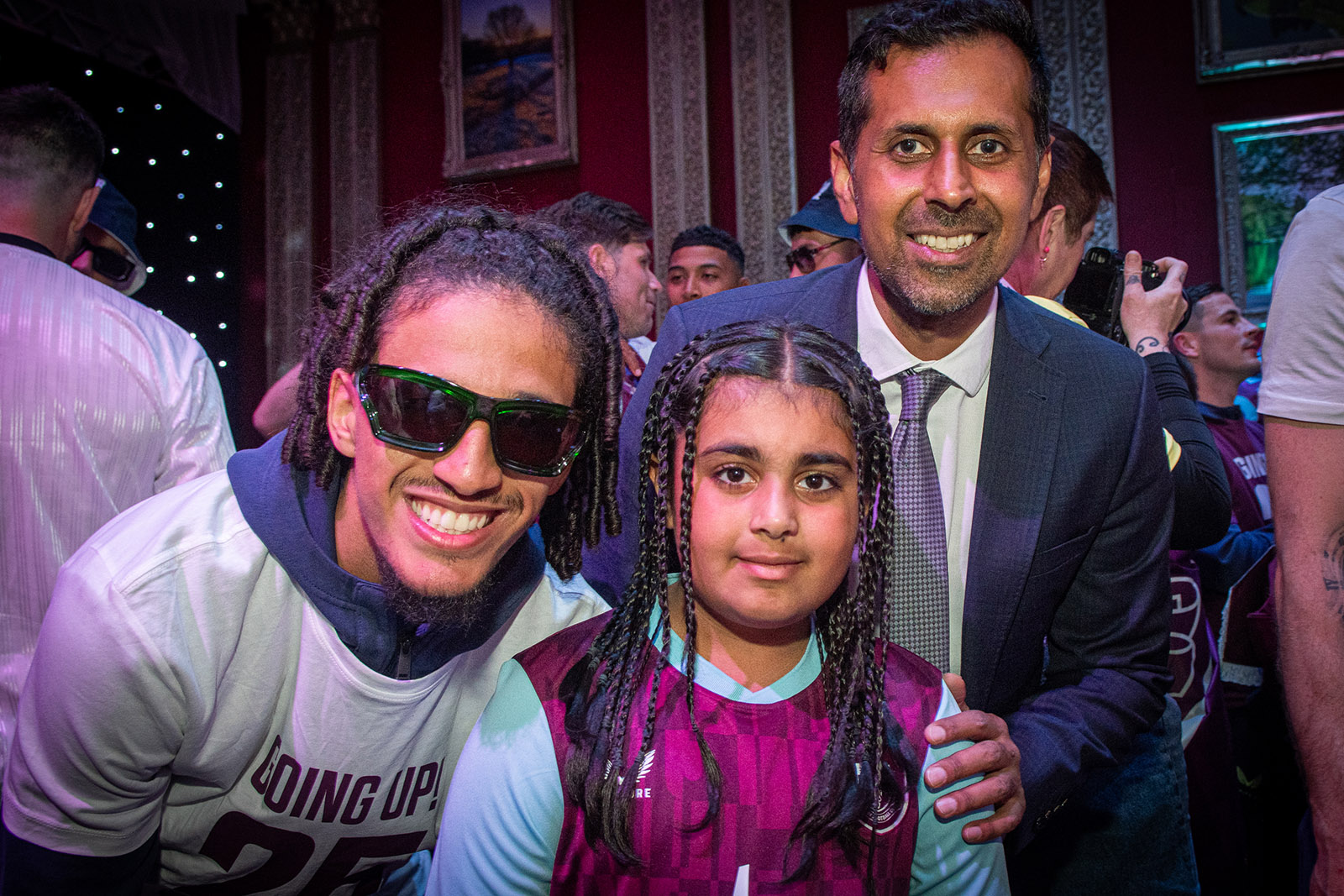
“The football club is metaphorically and physically at the heart of our town and is something that everybody relates to,” said Afrasiab Anwar, the leader of Burnley council. “When the football club does well, there’s a buzz.”
Anwar is a lifelong Burnley fan and a season ticket holder of 15 years. He has watched the club establish itself in the Premier League, punctuated by relegations back to the Championship, and describes with affection the tradition of “taking on” — the act of making family members into Burnley fans, particularly his daughter Hidayah.
Both Burnley and its “War of the Roses” rival Leeds United secured promotion to the Premier League in April. Beyond their competition, however, the areas have much in common — including sizeable Muslim populations.
Football in Burnley and Leeds was once associated with violence and racism. Today, however, the national sport is central to the lives of many in the local Muslim populations, helped by the rise of players such as Burnley’s Hannibal Mejbri — and supporters from all backgrounds have reacted with delight as the Clarets and the Whites try their luck at the big time once again.
Anwar, who is of Pakistani heritage, recalls the days when hooliganism and intolerance were commonplace on matchdays at Turf Moor. “I asked myself if it was a safe place to be going,” he said. “You watch it from a distance.”
But more recent flashpoints symbolise the journey the club has been on. In June 2020, Burnley fans flew a banner with the message “White Lives Matter Burnley” over the Manchester City stadium during an away game, in clear opposition to the anti-racist Black Lives Matter movement. Burnley condemned the stunt and the club captain at the time, Ben Mee, said he was “really upset” at the “small minority” that would organise such a thing.
Burnley also signed the Nujum Sports Muslim Athlete Charter, a commitment to recognise Muslims’ needs in football as a whole, in 2023. More recently, after Mejbri — who is Tunisian — was allegedly racially abused during a match with local rivals Preston, his teammates refused to shake the hand of the player involved. Such shows of solidarity sent a powerful message that all fans were welcome, said Anwar.
Awais Javid runs Daneshouse FC, a grassroots team in the town’s Stoneyholme area that is partly funded via Burnley’s charitable arm, Burnley FC in the Community. According to figures from the 2021 census, the ward of Daneshouse with Stoneyholme is 80% Muslim and 78% Asian, and two out of every three children there live in poverty.
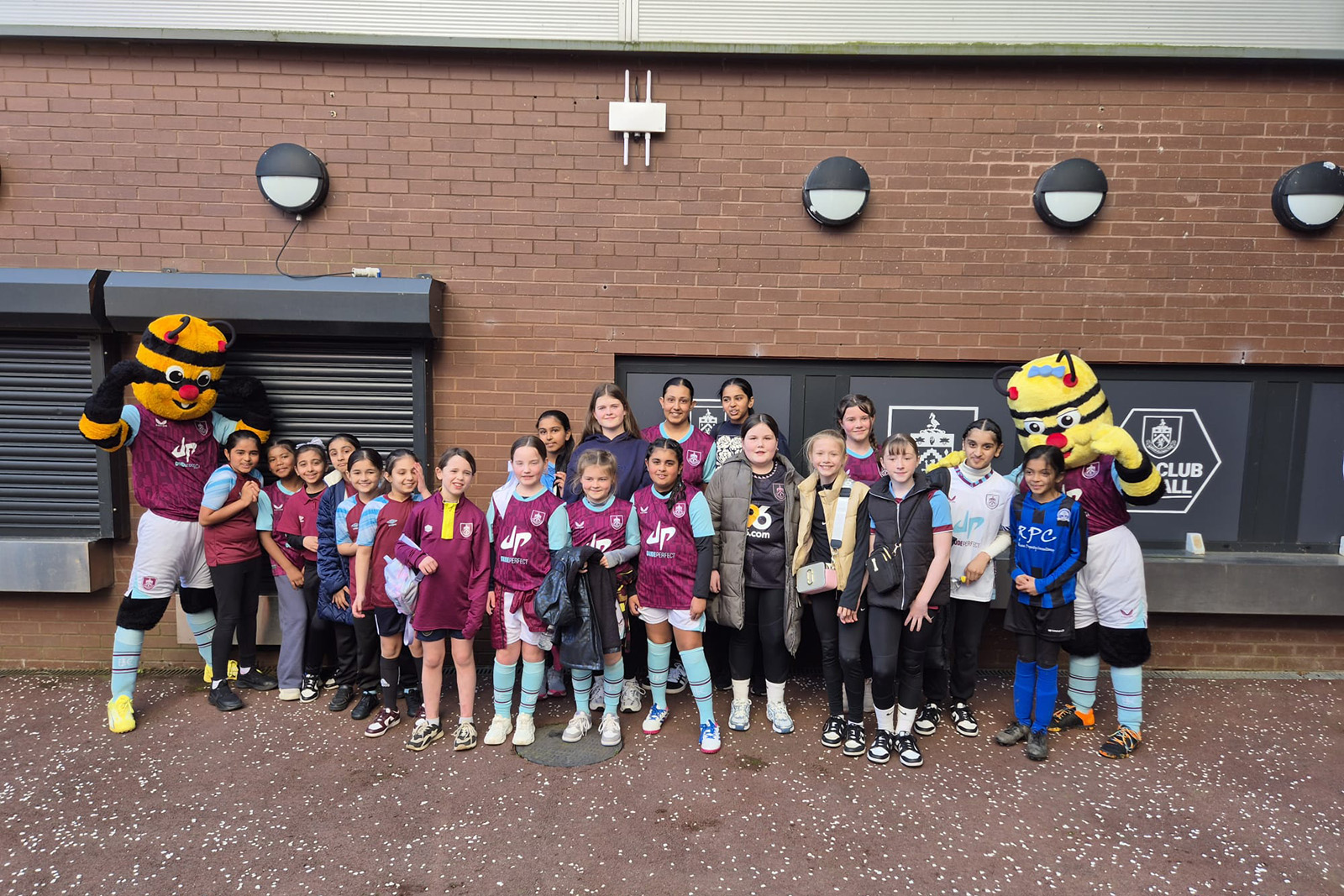
The impact on local kids has been immeasurable, Javid said. He and his coaches now run 10 junior teams, a senior team, and a new girls’ team, supported by Burnley FC in the Community’s female coaches.
The prestige of Burnley’s involvement has helped normalise the idea of Muslim girls participating in grassroots sport, he said: “It just helps with things such as parents being comfortable with it, trying to break down that barrier of getting girls playing.” The Daneshouse girls have waved the club crest as Burnley players enter the pitch, regularly accompany them into the stadium as mascots and have taken part in half-time penalty shootouts. Their coaching, meanwhile, is tailored to practising Muslims: training by Burnley FC in the Community does not take place on weekdays between 4pm and 7pm in case players want to attend the mosque.
“At the last parade I went to, we saw a lot more Muslims,” said Javid. “And I’m sure at this next one, there’ll be a lot more people of colour there as well.”
Humayun Islam is part of the Deshi Whites, a Leeds United fan group. He went to school “a free-kick away” from Leeds’ home ground, Elland Road, and idolised players such as Gary Kelly and Gordon Strachan.
Yet he attended just one match at Elland Road in his formative years. The sport in the 1990s was unwelcoming for people who were visibly Muslim, he said. “You were shielding,” he said. “The stereotypes of hooligans were true and you might have seen racist behaviour and potentially been attacked.”
Today, to help fans of all backgrounds feel welcome at Elland Road, Islam — who is Muslim and of Bangladeshi heritage — stewards people from his community to games. “If you’ve never had a matchday experience, you’re going to be intimidated,” he said. He and his fellow volunteers will walk fans to the stadium, explain how to go through the turnstiles, show them where the toilets are and offer practical advice for keeping warm.
He’s over the moon that Leeds are back in the Premier League. “It’s just an amazing, amazing opportunity,” he said. “Hopefully it brings the city closer together.”
Thanks in part to efforts such as his, a much wider variety of Leeds fans now share the team’s joy. “You want to be part of that celebration,” he said. “Wearing the white rose, you’re all wearing the same tops. You’re all celebrating the goals together. So for those 90 minutes, it’s all about the similarities.”
 Newsletter
Newsletter


